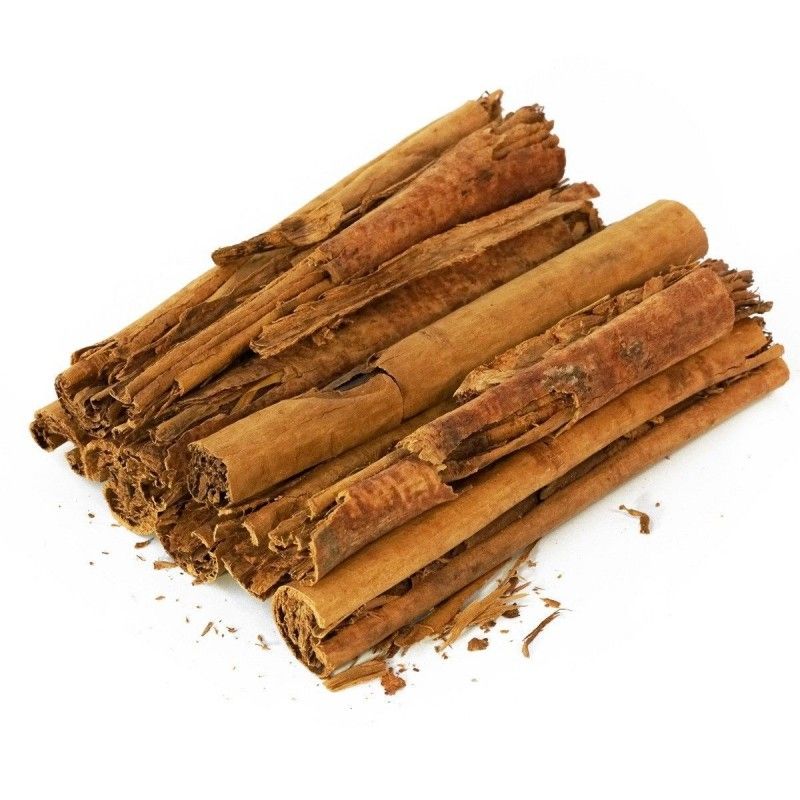Packaging: 40 g (or 500 g & 1 kg) containing broken cinnamon bark (in small pieces, as it is very fragile).
(The price includes VAT.)
Other Names: Ceylon Cinnamon & Cinnamon Bark
Properties:
- Improves circulation.
- Regulates blood sugar, cholesterol, and triglycerides.
- Effective against colds and flu.
- Relieves digestive disturbances.
- Has anticoagulant and antithrombotic properties.
- Enhances memory.
- Rich source of calcium, magnesium, and dietary fiber.
- Beneficial for the heart and blood vessels.
- Has warming and stimulating properties.
- Alleviates menstrual pain.
- Antibacterial; inhibits the growth of E. coli and Candida albicans.
- Relieves arthritis pain due to its anti-inflammatory properties.
Additionally, cinnamon is used in countless combinations in pastry and as a spice in meat dishes (such as beef, rabbit, etc.). It is also used in beverages, coffee, and desserts.
For diabetes-related issues, we combine Ceylon cinnamon with viburnum, wormwood, common germander, sage, and ginger. Combining the tinctures of Common Germander, Viburnum, Wormwood, Ceylon Cinnamon, Sage, and Ginger results in significantly more effective health outcomes for the aforementioned conditions.
If you enjoy our Ceylon cinnamon, check out our other products made with Ceylon cinnamon, such as: Ceylon cinnamon powder, Ceylon cinnamon tincture, a tincture mix for diabetes, Ceylon cinnamon essential oil, Ceylon cinnamon capsules (70 pieces, 600 mg), as well as infused products - teabags like the relax tea, the herbal blend with Ceylon cinnamon, Kozani saffron, and clove, and the herbal blend with Ceylon cinnamon and clove, and olive oil soap with cinnamon and bergamot.
Origin: Sri Lanka
Storage: Keep in a dark and cool place (5°C – 15°C).
Preparation: 1 tablespoon of crushed cinnamon (or a stick) is placed in a container with 1 cup of water, boiled for 5-10 minutes, and after a while, the liquid is strained and consumed.
Historical Information: Cinnamon is an ancient spice mentioned in the Old Testament. It has been used in parts of Europe since 500 BC. However, until the 16th century, only Chinese cinnamon was known in the West. The cinnamon from Sri Lanka has a more delicate aroma and is now the variety most commonly found in Europe.
Scientifically Supported Applications: The German Commission E and ESCOP recommend the use of cinnamon bark for digestive complaints, such as gas and spasmodic-type disturbances, as well as for anorexia, and ESCOP also for diarrhea. Scientific studies using cell systems have demonstrated the antispasmodic and anti-inflammatory effects of cinnamon essential oil. Additionally, its efficacy against various strains of fungi and bacteria has been proven.





